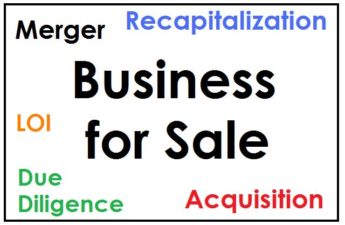A business is usually the most important asset that a business owner has. When you need to know the value of your business assets utilizing the services of a valuation expert is needed. Here are just some of the situations where a valuation are needed: • Estate planning • IRS Liability due to a taxable event such as estates (death of equity holder), gifting and so on • Retirement funding estimates • Buy-sell agreements and insurance • Marital, Partnership & Corporate Dissolutions • Annual valuation of stock options • Exit planning strategy • Value maximizing strategy – increase what a…
How is a Business Valuation Conducted?
The business valuation process can be broken down into four parts. 1) The engagement process 2) Research and data gathering 3) Analysis and development of the business value 4) Reporting engagement results There are several items that need to be considered at the start. What legal interest is to be valued – (e.g., 100% of the company’s common stock but partial interests can be valued too) Valuation date – the exact date the company’s value is to be calculated The valuation purpose (e.g., tax, business sale, litigation support, business planning and so on) Define the standard of value, which…
What Does a Tax Business Valuation Report Need?
IRS Revenue Ruling 59-60 describes the rules that define what constitues an acceptable (for IRS purposes) business valuation. Many courts also require that the valuations presented there follow these standards too. If you need a valuation that will be used to calculate tax liability or in court, the 59-60 standard is the way to go. The numbers 59-60 refer to the year the rule was first used (1959) and the number of the ruling in that year (60). Internal Revenue Code (IRC) 59-60 states that valuations used for tax purposes should address the following: The nature and history of the…
Commonly Asked Questions about IRC 409A (Options Valuations)
What is IRC 409A and what does it mean for Stock Options? During 2005 the IRS issued new regulations (Internal Revenue Code Section 409A) that required companies to establish that stock options were not being issued “in-the-money” or below “fair market value” as defined in IRS Revenue Ruling 59-60. The 409A regulations were recently finalized with an effective date of January 1, 2008 but may be applied to any compensation earned or deferred after December 31, 2004. To avoid tax event and potential penalties, a formal “valuation opinion” is required every 12 months, or more often if there is a…
The New(er) Strategies for Massive Startup Success
What can we learn from the startup efforts of companies that became wildly successful? What lessons can we take from the successful companies in the innovation hubs? I am talking about the massively successful startups – the ones that become unicorns (worth $1 billion or more). I’m not talking about smaller-scale, less ambitious startups. Mostly only those with unicorn potential. Startup land is a dynamic field. What works now and has worked in the past may not be a good template in the future. A lot of what succeeds in one time and place may not work in another. That…
The Process of Selling A Business
The owner of a privately held business has made the decision to sell their company. What is the process for this? What steps should be taken and in what order? Here is an outline of the key steps in the sales process. The process is basically the same for deals of all sizes and types. It assumes the business that is being sold has value. The goal is to start an auction, if at all possible. Should the business be troubled in some way, the sales materials will be more targeted to a specific buyer(s) and will focus on them.…
The Stock Market Goes Up, Goes Down or Stays the Same
Here are at The Value Focus we talk about business decision making around Strategy, M&A, Exit Planning and Business Valuation. Short term trading in publically traded equity markets is not what we advise on. Still, I get asked about this topic reasonably often. So here is some perspective. Recently, the publicly traded stock markets have become more volatile. I do not know if this will continue or not. Neither you or I know how the markets will perform in the short term. I do know that the markets tend to increase over longer periods of time. In fact, there is…






